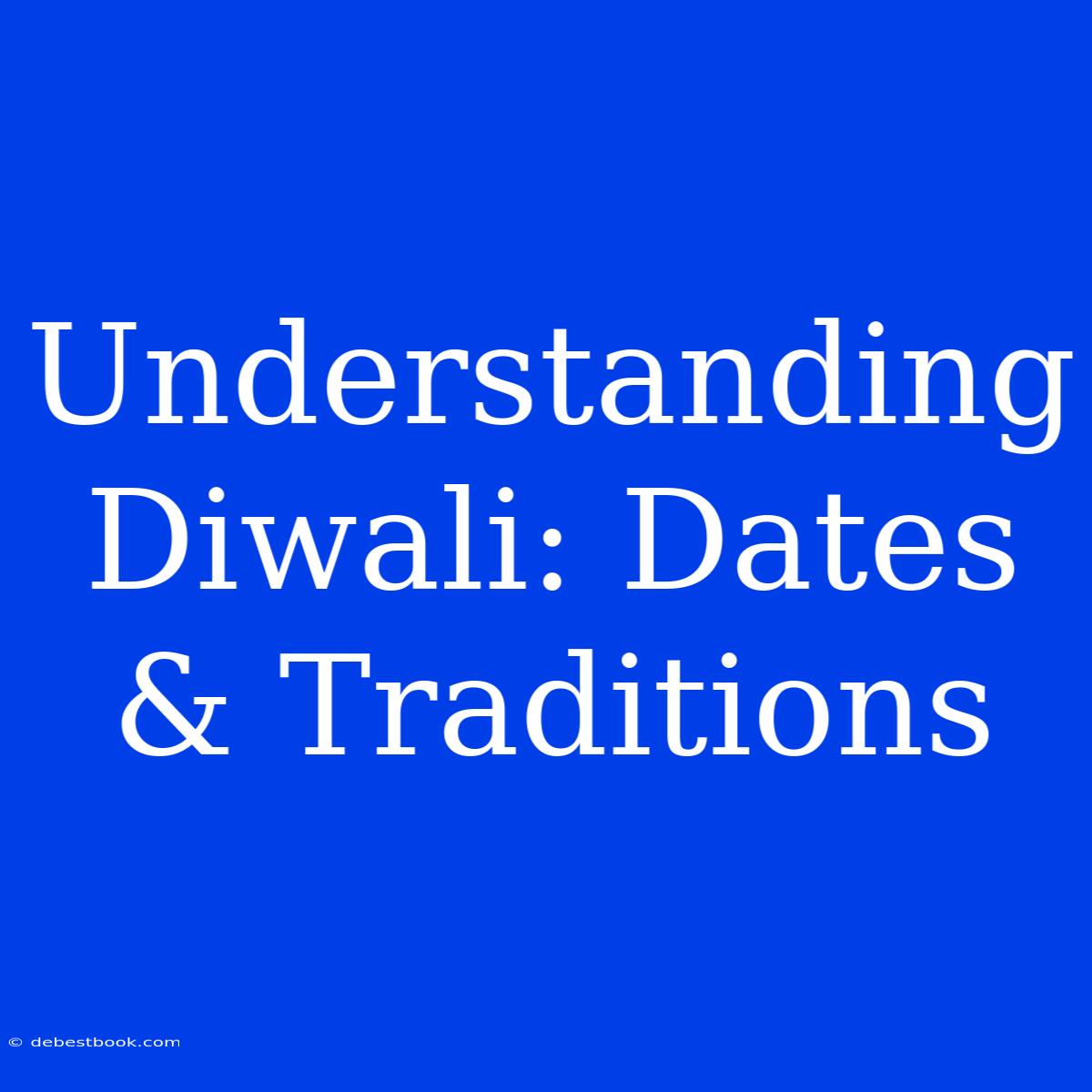Understanding Diwali: Dates & Traditions - A Celebration of Light & Hope
Is Diwali a fixed date? No, the date of Diwali changes each year. Diwali is a festival that celebrates the triumph of good over evil, knowledge over ignorance, and light over darkness. This festival, also known as the "Festival of Lights," is deeply rooted in Indian culture and holds immense significance for Hindus, Sikhs, and Jains.
Why is this important? Understanding Diwali goes beyond simply knowing the dates. It's about appreciating the rich history, cultural practices, and spiritual essence behind this vibrant celebration.
This guide dives into the key aspects of Diwali:
- The Importance of Diwali: Exploring the festival's significance across different religions and traditions.
- Diwali Dates: Unraveling the reasons behind the changing dates of Diwali and how to determine the festival's yearly observance.
- Diwali Traditions: A comprehensive look at the various rituals, customs, and festive activities associated with Diwali.
- Diwali Symbolism: Decoding the deeper meanings behind the symbols and rituals, highlighting their importance in celebrating Diwali.
- Diwali Celebration Across India: Discovering the diverse ways Diwali is celebrated in different regions of India.
Analysis: This guide combines historical research, cultural understanding, and practical information to provide a holistic understanding of Diwali. We delved into ancient scriptures, cultural practices, and modern-day observances to bring you a comprehensive overview of this impactful festival.
Key Takeaways of Diwali:
| Key Aspect | Description |
|---|---|
| Celebration of Light & Hope | A symbol of victory over darkness and evil, bringing joy and prosperity. |
| Renewal and Rebirth | A time to reflect, let go of negativity, and embrace new beginnings. |
| Family & Community | Celebrated with loved ones, strengthening bonds and fostering unity. |
| Festive Delights | Enjoyment of delicious food, sweets, fireworks, and traditional decorations. |
The Importance of Diwali:
Diwali holds immense significance for various religious communities:
- Hindus: Diwali commemorates the return of Lord Rama, along with his wife Sita and brother Lakshmana, to Ayodhya after defeating the demon king Ravana.
- Sikhs: Diwali celebrates the release of Guru Hargobind Sahib, the sixth Sikh guru, from prison, along with 52 other prisoners.
- Jains: Diwali marks the attainment of moksha (liberation) by Lord Mahavira, the last Tirthankara of Jainism.
Diwali Dates:
Diwali is celebrated on the darkest new moon of the Hindu lunisolar month of Kartik, which usually falls between mid-October and mid-November. The exact date varies each year based on the lunar calendar.
Diwali Traditions:
Diwali is a time for festivities, rituals, and customs that reflect the spirit of celebration:
- Diya Lighting: Lit clay lamps, called diyas, are placed inside and outside homes to symbolize the triumph of light over darkness.
- Laxmi Puja: Worship of the Goddess Lakshmi, the deity of wealth and prosperity, is performed to invite blessings and good fortune.
- Fireworks: The colorful display of fireworks is a vibrant aspect of Diwali celebrations, adding to the festive atmosphere.
- Rangoli: Intricate patterns are created on the floor using colored powders, flowers, or rice, adding beauty and welcoming good luck.
- Sweets & Gifts: Sharing sweets with family and friends is a cherished tradition, symbolizing joy and togetherness.
Diwali Symbolism:
The various symbols and rituals of Diwali have deeper meanings:
- Diyas: The light from the diyas represents knowledge, wisdom, and the removal of ignorance.
- Laxmi Puja: The worship of Lakshmi symbolizes the aspiration for prosperity, abundance, and good fortune.
- Fireworks: The bursting of fireworks symbolizes the joy and happiness associated with Diwali.
- Rangoli: The intricate designs of rangoli represent creativity, beauty, and the welcoming of auspiciousness.
- Sweets & Gifts: The act of sharing sweet treats and gifts signifies generosity, kindness, and building stronger bonds.
Diwali Celebration Across India:
The way Diwali is celebrated varies across different regions of India:
- North India: Diwali in North India is characterized by elaborate decorations, vibrant Rangoli patterns, and grand firework displays.
- South India: The focus in South India is on worshiping Lakshmi, with rituals including lighting diyas, offering flowers and sweets, and performing special poojas.
- West India: Diwali in West India is marked by the celebration of "Narak Chaturdashi," where people burn effigies of the demon Narakasura.
- East India: Diwali in East India features a grand celebration of Kali Puja, worshiping the goddess Kali, who represents power and energy.
Understanding Diwali is about embracing its historical significance, cultural practices, and the spirit of celebration. It's a time to reflect on the triumph of good over evil, to light up our lives with hope and joy, and to celebrate with loved ones.
Happy Diwali!

